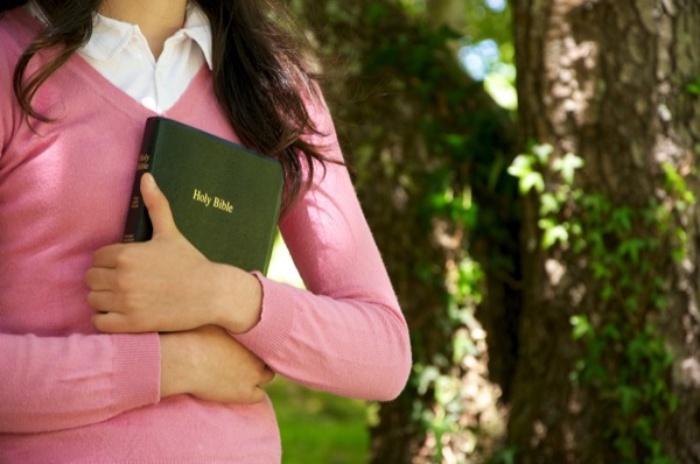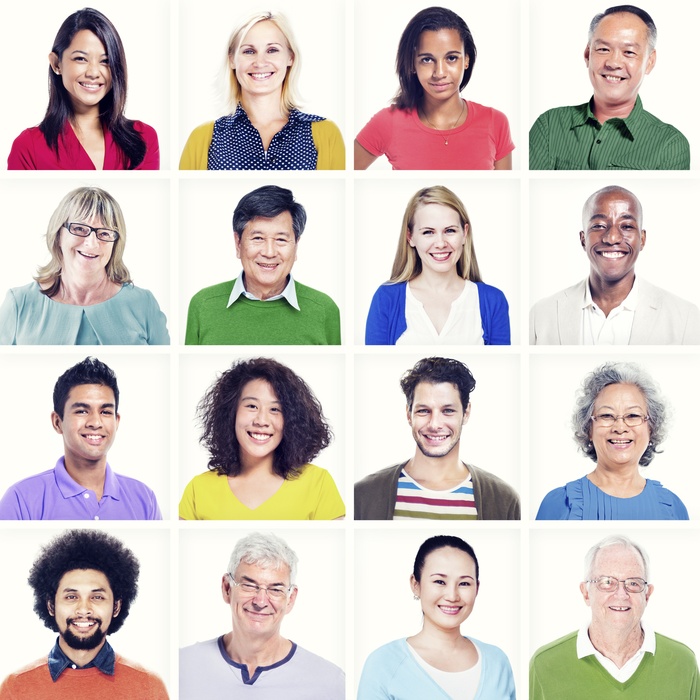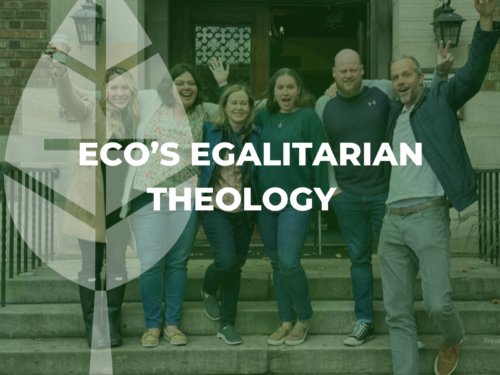 Egalitarian Ministry, Leadership
Egalitarian Ministry, Leadership
Both men and women are important to the Church. This sentence doesn’t seem like...
 Egalitarian Ministry
Egalitarian Ministry
By: ECO Team
We strongly desire to grow in our ethnic diversity, but realize that if we are to fully live out our 5th core value of egalitarian ministry: unleashing the invaluable gifts of every ethnic group, we must seek assistance from those on the outside who have expertise in this area. One of the ways ECO has taken steps forward is by purchasing a Multi-Ethnic Learning Community cohort from Exponential for 25 participants. Interested in participating? We have great news: spots are still available!
My prayer is not for them alone. I pray also for those who will believe in me through their message, that all of them may be one, Father, just as you are in me and I am in you. May they also be in us so that the world may believe that you have sent me. I have given them the glory that you gave me, that they may be one as we are one—I in them and you in me—so that they may be brought to complete unity. Then the world will know that you sent me and have loved them even as you have loved me. (John 17:20-23).
According to the latest research, 86.3 percent of U.S. churches fail to have at least 20 percent diversity in their attending membership. Churches are 10 times more segregated than the neighborhoods where they’re located, and 20 times more segregated than nearby public schools. The problem? An increasingly diverse and cynical society is no longer finding credible the message of God’s love for all people as proclaimed from segregated pulpits and pews. The solution? A return to the principles and practices of first-century churches. Scripture tells us about churches in Antioch, Ephesus and Rome where diverse men and women walked, worked and worshiped God together as one, so that the world would know God’s love and believe (John 17:20-23).
The same potential exists for today’s 21st-century churches. But we will have to be intentional and learn from others. In this new Learning Community, we will explore the theological foundations, historical obstacles, core commitments, common challenges and promising practices, of established healthy multiethnic communities of faith (outlined in the book Building a Healthy Multi-ethnic Church by Mark DeYmaz). A pioneering church already on the journey will host each gathering, demonstrating both why we should and how you can establish healthy multiethnic churches that intentionally and joyful reflect their communities for the sake of the gospel.
Primary text: Building a Healthy Multi-ethnic Church by Mark DeYmaz
Secondary text: Leading a Healthy Multi-ethnic Church by Mark DeYmaz and Harry Li
Kentwood Community Church – Kentwood (Grand Rapids), MichiganBIG IDEAS:• Theological foundations of the Multi-ethnic Church Movement: Exploration of what Christ envisioned, Luke described and Paul prescribed for the local church so that the world would know God’s love and believe.• Current obstacles to inclusion: Three macro adjustments that must be made in the American church to present a credible witness of God’s love for all people in an increasingly diverse and cynical society.• Seven core commitments of a healthy multiethnic church• Transitioning a homogeneous but otherwise healthy church
Peoples Church – Cincinnati, OhioBIG IDEAS:• The gospel of Paul: Exploration of the life and death of Paul—for what, whom and why he gave his life; Paul’s more excellent way (I Cor. 12:31); and the first love we must recover for the sake of God’s anointing.• Pathways to reconciliation: Three ways in which reconciliation should shape us as individuals, the churches we lead and the communities we serve.• Seven common challenges to leading a healthy multiethnic church and how to overcome them• Planting/developing a healthy multiethnic church
Mosaic Church, Little Rock, ArkansasBIG IDEAS:• RCT: a model for community engagement and transformation exploration of what’s required spiritually, socially and economically, if in fact the local church is to become a bright light in the public square (Matt. 5:16) and getbeyond rhetoric to results in advancing real community transformation.• Why rhetoric fails: Three reasons why churches fail to effectively engage their communities in ways that lead to systemic change and measurable results.• Funding the vision/mission in economically challenged urban centers
See the attached prospectus for the full details of the cohort. Attached is an application that needs to be completed and returned to Sarah Van Lant [Sarah@eco-pres.org ]
“Living out the key value of unleashing every multi-ethnic group will take a lot of work! But it is clear in scripture that the gospel of Jesus Christ is what takes down the walls that society normally erects to divide us. If we are going to make God’s kingdom come on earth as it is in heaven, we must live out our values in our churches and among our people.” – ECO Synod Executive, Dana Allin
“Multiculturalism is not easy. Obviously, it has its own challenges indeed but still remains the best reflection of the gospel of peace. It is my persuasion that with love, cultural education, tolerance, faith, and a Christ centered approach to life and worship, multiculturalism will be possible.” – Rev Dr. Aluu Williams Nnali, Senior Pastor of The Presbyterian Church Chapel of Grace, Houston TX
 Egalitarian Ministry, Leadership
Egalitarian Ministry, Leadership
Both men and women are important to the Church. This sentence doesn’t seem like...
 Egalitarian Ministry
Egalitarian Ministry
In the last newsletter, I talked about four key objectives that would be the nec...